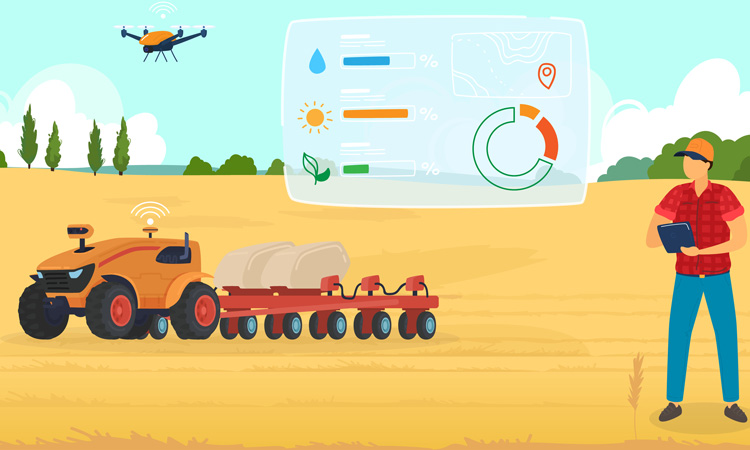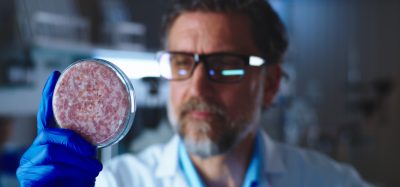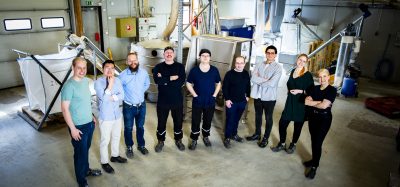Innovative UK agri-tech projects to benefit from £24 million investment
Posted: 20 July 2020 | Sam Mehmet (New Food) | No comments yet
The nine projects to receive funding are applying big data, artificial intelligence and robotics to UK farming, with the aim of establishing a more efficient system of food production that cuts costs and reduces greenhouse gas emissions.


The UK Department for Environment, Food and Rural Affairs (Defra) has announced that nine agri-tech projects are to benefit from £24 million Government funding.
A project in Nottingham that converts carbon dioxide (CO2) into clean animal feed is one of the projects set to benefit. Nottingham-based consortium REACT-FIRST will receive over £2 million to generate clean, sustainable food for fish and poultry with an up to 75 percent smaller carbon footprint. The project will use its technology to turn carbon dioxide from Drax Power’s Selby power station into animal food with minimal water usage and without the need for arable farmland.
The funding aims to allow the consortium to provide a greener alternative to soy and fishmeal for the animal industry, enabling industries that traditionally create higher levels of waste, such as agriculture, to contribute to a cleaner environment.
The project will work with retailer Sainsbury’s as well as the Scottish Aquaculture Innovation Centre to integrate into the fish and poultry supply chain, helping to ensure that industry demand is met.
Science Minister, Amanda Solloway, said:” From robotics assisting our farmers in fruit picking, to technology that converts CO2 to clean animal feed, the incredible projects we are backing today represent the future of farming.
“Working with the best of British science, we are turning our most creative ideas into pioneering projects that will accelerate our transition to net zero food production, boost jobs and drive forward the UK’s economic recovery.”
Other agri-tech projects receiving funding include the world’s first Autonomous Growing System (AGS), led by Optimal Labs in London, which will receive over £2 million to provide autonomous technology that controls climate, irrigation and lighting, enabling any crop variety to be grown in any location. This aims to significantly increase production levels and resource-efficiency in existing UK greenhouses, helping to protect the UK’s food system against climate change and population growth.
A further project led by Saga Robotics in Lincoln will receive nearly £2.5 million to perform the largest known global demonstration of robotics and autonomous technologies on a farm. The robots will assist farmers by carrying out essential, energy intensive physical farming processes such as picking and packing fruit and treating crops to reduce critical pests and diseases. This aims to help provide a more efficient food supply at a cheaper cost, allowing farmers to commit more time to the wider running of their farms.
Farming Minister, Victoria Prentis, said: “It’s great to see investment in these outstanding ideas which will help us tackle the farming industry’s greatest challenges, from achieving net zero emissions to investing in sustainable alternative protein for animal feed. Farming has never before been at the centre of such exciting and forward looking innovations.”
To view a full list of the nine agri-tech projects, click here.
Related topics
Research & development, Robotics & automation, Supply chain, Sustainability, Technology & Innovation









